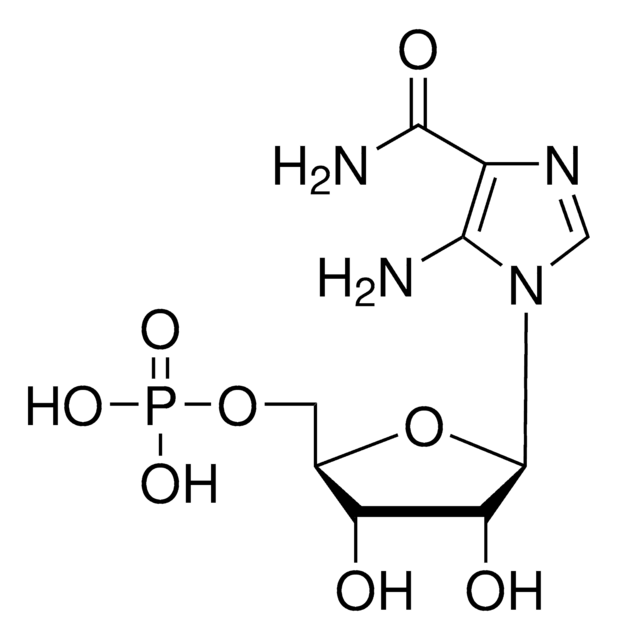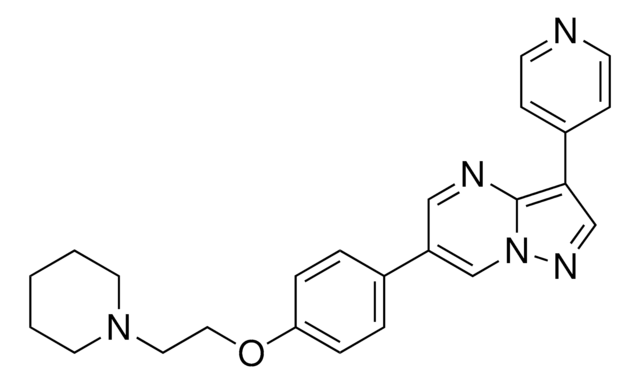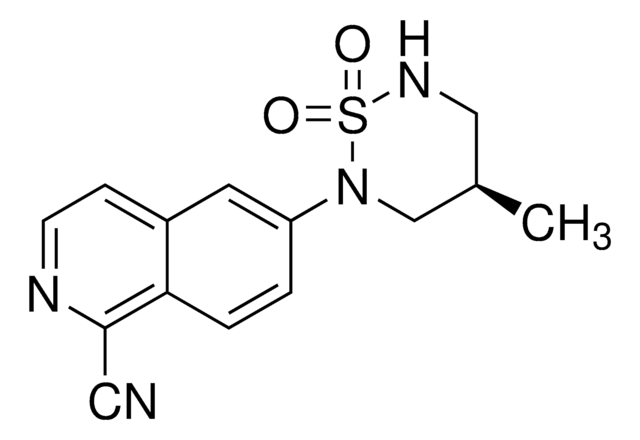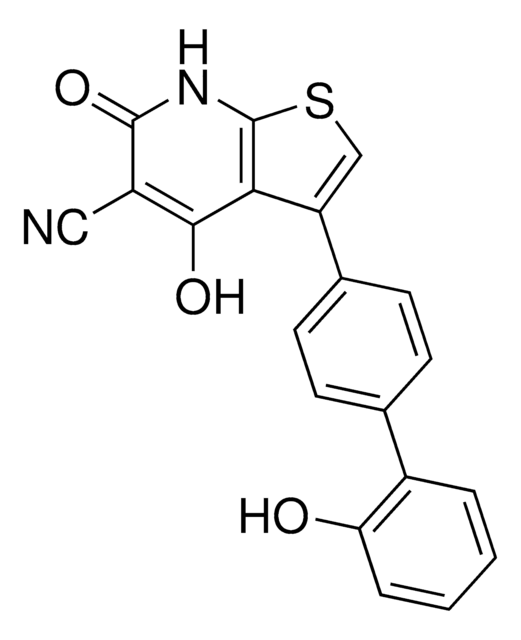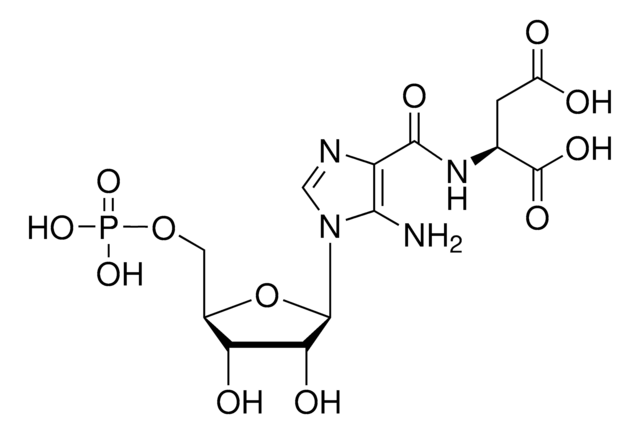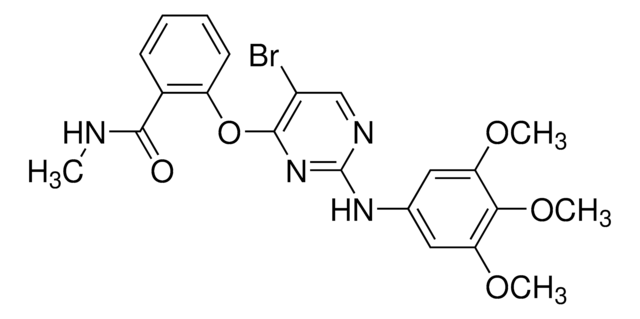A9978
AICAR
≥98% (HPLC), powder, AMPK activator
Synonym(s):
5-Aminoimidazole-4-carboxamide 1-β-D-ribofuranoside, Acadesine, N1-(β-D-Ribofuranosyl)-5-aminoimidazole-4-carboxamide
About This Item
Recommended Products
product name
AICAR, ≥98% (HPLC), powder
Assay
≥98% (HPLC)
form
powder
color
tan
mp
214-215 °C
solubility
H2O: >7 mg/mL
shipped in
dry ice
storage temp.
−20°C
SMILES string
NC(=O)c1ncn([C@@H]2O[C@H](CO)[C@@H](O)[C@H]2O)c1N
InChI
1S/C9H14N4O5/c10-7-4(8(11)17)12-2-13(7)9-6(16)5(15)3(1-14)18-9/h2-3,5-6,9,14-16H,1,10H2,(H2,11,17)/t3-,5-,6-,9-/m1/s1
InChI key
RTRQQBHATOEIAF-UUOKFMHZSA-N
Looking for similar products? Visit Product Comparison Guide
General description
Application
Biochem/physiol Actions
Features and Benefits
Storage Class Code
11 - Combustible Solids
WGK
WGK 3
Personal Protective Equipment
Certificates of Analysis (COA)
Search for Certificates of Analysis (COA) by entering the products Lot/Batch Number. Lot and Batch Numbers can be found on a product’s label following the words ‘Lot’ or ‘Batch’.
Already Own This Product?
Find documentation for the products that you have recently purchased in the Document Library.
Articles
We present an article about how proliferating cells require the biosynthesis of structural components for biomass production and for genomic replication.
Related Content
Discover Bioactive Small Molecules for Kinase Phosphatase Biology
Our team of scientists has experience in all areas of research including Life Science, Material Science, Chemical Synthesis, Chromatography, Analytical and many others.
Contact Technical Service